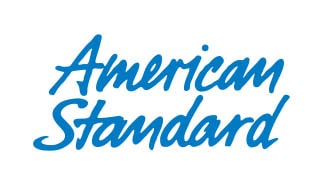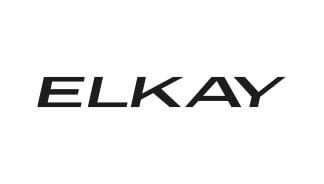Published on
August 31st, 2023When Does a Leaking or Broken Toilet Become an Emergency?
In a multi-tenant property, toilet repairs are common. Landlords are not always financially liable for toilet issues, particularly those stemming from clogs of non-flushable objects. Still, regardless of the monetary burden, repairs are necessary to ensure a functional, healthy environment.
Not all plumbing problems are emergencies, and not all clogs require emergency toilet repair. Knowing when situations are emergent can save a landlord money. Discover what defines a plumbing emergency and how to reduce your building’s risks.
When Is Emergency Toilet Repair Necessary?
The Qualifications of a Plumbing Emergency
All plumbing problems are inconvenient, but inconvenience does not always constitute an emergency. A problem elevates when it becomes destructive, severe, or unsafe. Toilet leaks may not seem emergent at first, especially minor leaks. If given enough time, though, even a minor leak can cause significant damage.
A repetitive leak behind a toilet can cause puddling, damaging flooring and possibly leading to rot. Rot can weaken the subfloor and the structural beams beneath if allowed to spread and fester. Without mitigative action, building owners put tenants at significant risk.
While minor leaks may not become emergencies for a long time, severe issues like line breaks or constant running water demand immediate attention. To avoid damage from either problem, a tenant or landlord must shut off the water supply to the toilet, rendering it useless until repair. Depending on the number of restrooms in a unit, either issue can require emergency toilet repair.
Finally, emergency repair is essential if a problem risks tenant health or safety. A toilet backup is the primary example of an unsafe and unhealthy situation. Backups typically stem from a blockage in the plumbing system’s main line. With nowhere to go, the sewage or wastewater backs into the nearest drain or toilet, causing an overflow.
You can qualify a toilet or plumbing emergency by its severity and likelihood of propagating destruction or an unsafe environment. However, not all emergencies are so drastic. As a landlord and property owner, even minor inconveniences for tenants can create stress and anxiety. It’s often best to treat all complaints as emergent until there’s a chance to assess and verify them.
Why Is It Necessary To Prioritize All Plumbing Repairs and Maintenance?
Reduce the Need for an Emergency Toilet Repair
Emergency plumbing issues often stem from long-term unaddressed issues. A small ongoing leak can continue to weaken a plumbing seal until it fails, or a crack in a mainline may allow roots to enter the line, causing blockages and further damage.
Routine maintenance can reduce the risks of most emergencies. An annual drain cleaning and thorough inspection can identify minor leaks or cracks in the supply and drain lines, allowing licensed professionals to repair the problems before evolving into emergent cases.
Emergency repairs accrue additional service charges. Property owners can save money and headaches by signing annual service contracts or following a strict maintenance and inspection schedule.
Improve Water Efficiency and Pressure
According to the Environmental Protection Agency, a single leaky faucet can waste over 3,000 gallons of water annually. Also, 10% of homes waste nearly 90 gallons of water daily from leaks. In the U.S., minor leaks account for about 1 trillion gallons of wasted water annually, equivalent to the annual water use in almost 11 million homes.
Toilet leaks may not always require emergency toilet repair, but they often stem from worn valve seals or flappers and can waste thousands of gallons annually. The seal is the rubber device in the toilet tank that lifts with the flushing mechanism allowing water to flow into the bowl. Flappers last about five years but require occasional checks to ensure a strong seal.
Leaks in the plumbing system can reduce water pressure throughout by diverting water from a plumbing fixture to another part of the system. A gushing leak is the likely culprit for reduced pressure and classifies as an emergency.
Annual maintenance and inspections should catch most leaks. Property owners can help identify leaks early by paying attention to water usage and bills. A sudden increase in either may indicate a leak somewhere in the premises.
Avoid Health Issues and Liability Risks
Building owners are legally responsible for maintaining a healthy, functional, and safe environment. Unchecked or unmitigated leaks and plumbing problems can cause health and safety issues.
Mold is a common side effect of leaks. When investing in an emergency toilet repair or other plumbing fix, requesting an assessment of surrounding materials is worthwhile. Depending on the duration and severity of the leak, mold can develop.
Even if a toilet repair seems superficial, building owners may want to investigate the materials around the toilet. Mold is more than an issue for insurance; it is a potential health threat with possible legal implications.
Beyond mold, plumbing emergencies can involve sewage backups, requiring apartment or property evacuation. Backups typically include black water, a significant contaminant and health threat. While you cannot eliminate all backup risks, a professional plumber can help identify and install preventative measures, such as backflow valves.
Most emergencies that can result in health risks are avoidable with preventative maintenance. A professional service such as Sanitary Plumbing offers annual service contracts to ensure property owners stay on top of routine and essential maintenance.
Make the Most of Appliance Lifespans
Situations calling for emergency toilet repair and other time-sensitive plumbing problems can occur spontaneously but more frequently arise because of lapsed inspections and system maintenance.
Toilets, dishwashers, washers, and other plumbing appliances demand routine maintenance to make good on warranty promises and lifespan guarantees. As a property owner who may or may not be responsible for plumbing appliances, you should do everything you can to protect the equipment, including maintaining supply and drain lines.
Poor upkeep of a plumbing system can lead to damage to attached components, including faucets and toilets. Consult Sanitary Plumbing to determine an appropriate inspection and maintenance schedule for your system and any plumbing appliances you are responsible for.
How To Deal With an Emergency Toilet Repair
Contact Sanitary Plumbing
An emergency repair is necessary whenever a problem affects property, health, or safety. Even if a damaged toilet or fixture doesn’t meet the prerequisite of an emergency, it is crucial to repair any damage before it evolves into a more severe issue. Contact Sanitary Plumbing at 212-734-5000 to schedule repairs, discuss annual service contracts, or schedule a plumbing inspection.








